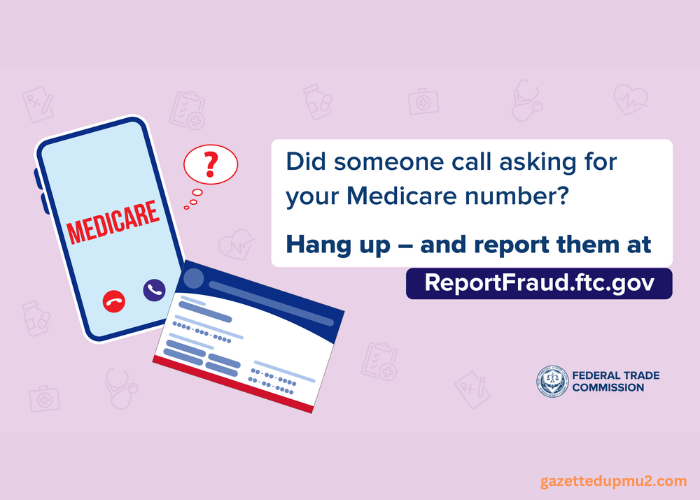One of the greatest initiatives the US has ever devised is Medicare. It guarantees that the majority of people over 65 may access necessary healthcare without becoming bankrupt.
Regrettably, scammers who take advantage of misappropriated or stolen information to get quick money can also prey on Medicare. Caregivers should be aware of the most prevalent types of Medicare fraud to safeguard their senior loved ones and the Medicare program.
-
New Medicare Cards
Scammers continue to phone Medicare card users even though new cards were introduced in recent years to reduce identity theft (the previous cards showed the member’s SSN). Scammers frequently try to trick you into accepting a new type of chipped card, even though Medicare does not provide such kinds of cards.
Thieves can try to persuade you that your cards are out-of-date and inoperable. After that, they’ll want private details to “confirm your identity.”
Recall that you may print a new card from your Medicare account online or request one directly from Medicare if you ever misplace your original or need a replacement.
-
Offers of Better or More Affordable Plans
Most Medicare beneficiaries receive free coverage, but some supplemental plans from providers such as ACE Medicare Supplement may charge a monthly fee. Since thieves are aware of this, they will attempt to obtain your information by offering cheaper supplemental insurance or prescription coverage that Medicare does not provide.
Scams involving Medicare Advantage plans occur when someone tries to sell you an Advantage plan at a lower cost or with more coverage.
-
Refund or Rebate Offers
Scammers will attempt to trick you into believing that you may receive refunds and rebates on medical procedures, prescription drugs, and equipment if you confirm your billing information or sign up for another service. This is because rebates and refunds on these items are appealing to everyone.
While there may be some valid rebates or refunds available, your healthcare provider should let you know about any that you may be eligible for.
-
Medicare Plan Cancellation
Threatening to terminate your Medicare benefits is one of the most popular methods by which con artists attempt to obtain your personal information. The cancellation of your benefits is not always the result of nonpayment of mandatory premiums, despite what some Medicare phone scammers claim. You may lose coverage if you do provide your Medicare number to a con artist who uses it to submit fraudulent claims.
-
Offers of Free Medical Supplies or Tests
If you only give them your Medicare number, some Medicare scammers may give you free or significantly cheap medical equipment or testing (genetic testing is one of the most popular test types utilized in fraud). Scammers can claim to be representatives of a business that sells these goods. Some con artists may claim that they require your number to obtain medical care for another person and that the supplies or tests are payment for their services.
You are the only one authorized to use your Medicare card, so if you give them your number, you might never get any tests or equipment, and if someone else uses your number, your coverage might be terminated.
-
Billing for Services Never Received
This kind of fraud usually happens when a con artist gets their hands on your senior’s Medicare card. The fraudster can then charge Medicare for treatments that the patient never receives using that number.
One beneficiary found out her Medicare account had been charged for both a prostate and a pregnancy test. This is arguably the most well-known example of Medicare fraud.
Nobody probably received any form of medical care when this kind of scam happened. Rather, con artists create fictitious medical facilities and submit Medicare bills via identity theft.
It is amazing how reluctant Medicare staff are to report this type of theft. Even after June Smith reported the fraud to Medicare, she found that further fraudulent claims had been paid. Before settling the fictitious claims, it seems that no one at Medicare bothered to observe that she was a woman and that she had undergone a hysterectomy.
The majority of seniors benefit from Medicare from providers such as ACE Medicare Supplement. However, it is vulnerable to misuse and manipulation, much like many other systems. Protecting their older loved ones requires caregivers to be informed of the most prevalent Medicare frauds.





